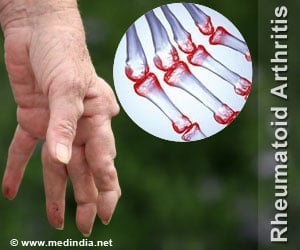Carrying excess fat in the upper arms and abdomen may heighten the risk of dementia and Parkinson’s disease, highlighting the importance of body composition in health.
- Excess fat in the upper arms and abdomen is linked to a higher risk of neurodegenerative diseases
- Increasing muscle mass and maintaining a healthy weight can reduce this risk
- Regular exercise and a balanced diet are crucial for overall health and may help prevent neurodegenerative conditions
Association Between Body Composition Patterns, Cardiovascular Disease, and Risk of Neurodegenerative Disease in the UK Biobank
Go to source). Neurodegenerative disorders, such as Alzheimer’s and Parkinson’s disease, are becoming increasingly prevalent worldwide. The number of people living with dementia is projected to reach around 153 million by 2050, while Parkinson’s disease cases have more than doubled since 1990, affecting over 6 million individuals globally.
Excess visceral fat, which surrounds internal organs, is associated with a higher risk of neurodegenerative diseases, affecting brain health over time. #neurohealth #bellyfat #medindia’
Impact of Body Fat Distribution in Neurodegenerative Disorders
A study, utilizing data from the UK Biobank, investigated the influence of body fat distribution on neurodegenerative disease risk. Published in Neurology, the research found that increased fat in the belly and upper arms was associated with a higher risk of these conditions. Conversely, greater muscle mass appeared to offer some protection against neurodegeneration.Ryan Glatt, a senior brain health coach, noted that while the study provided valuable insights, its observational nature and the predominance of white participants limit its broader applicability. He also pointed out that the exact mechanisms through which body composition affects neurodegenerative disease risk require further exploration.
The study followed 412,691 participants for an average of nine years. It revealed that individuals with higher amounts of central (abdominal) fat or arm fat were more likely to develop neurodegenerative disorders, while increased bone density and muscle strength were associated with a lower risk.
Huan Song, MD, Ph.D, emphasized that improving body composition, particularly by reducing trunk and arm fat while promoting muscle growth, could be a promising strategy for reducing disease risk. However, he acknowledged that the role of muscle mass in lowering disease risk might be a marker of overall better health rather than a direct cause.
The Role of Exercise in Preventing Neurodegenerative Disorder
The findings underscore the broader benefits of exercise, which not only helps manage body composition but also supports brain health. The National Institute on Aging advises that strength training and any form of physical activity can significantly contribute to maintaining both physical and cognitive health as we age.- Improves Body Composition: Engaging in regular exercise helps reduce excess fat, particularly in areas like the abdomen and upper arms, which have been linked to higher risks of dementia and Parkinson's disease. Exercise promotes the reduction of visceral fat (fat around internal organs) and encourages healthy muscle growth, thereby improving body fat distribution.
- Enhances Cognitive Function: Studies have shown that physical activity boosts brain health by improving blood flow, reducing inflammation, and supporting the growth of new brain cells. Regular exercise has been associated with better cognitive function, delayed onset of cognitive decline, and a lower risk of developing neurodegenerative diseases.
- Promotes Neuroplasticity: Exercise stimulates the production of Brain-Derived Neurotrophic Factor (BDNF), a protein that supports brain health by enhancing neuroplasticity—the brain's ability to adapt and reorganize itself. Increased BDNF levels can help protect against neurodegenerative conditions by fostering resilience in brain networks.
- Reduces Inflammation and Oxidative Stress: Physical activity helps lower chronic inflammation and oxidative stress, both of which are implicated in the development and progression of neurodegenerative diseases. By mitigating these factors, exercise contributes to better brain health and reduces disease risk.
- Supports Mental Health: Exercise has been shown to alleviate symptoms of depression and anxiety, conditions often associated with an increased risk of neurodegenerative disorders. A positive mental state can contribute to overall cognitive health and enhance the effectiveness of other preventive measures.
Reference:
- Association Between Body Composition Patterns, Cardiovascular Disease, and Risk of Neurodegenerative Disease in the UK Biobank - (https://www.neurology.org/doi/10.1212/WNL.0000000000209659)
Source-Medindia
















